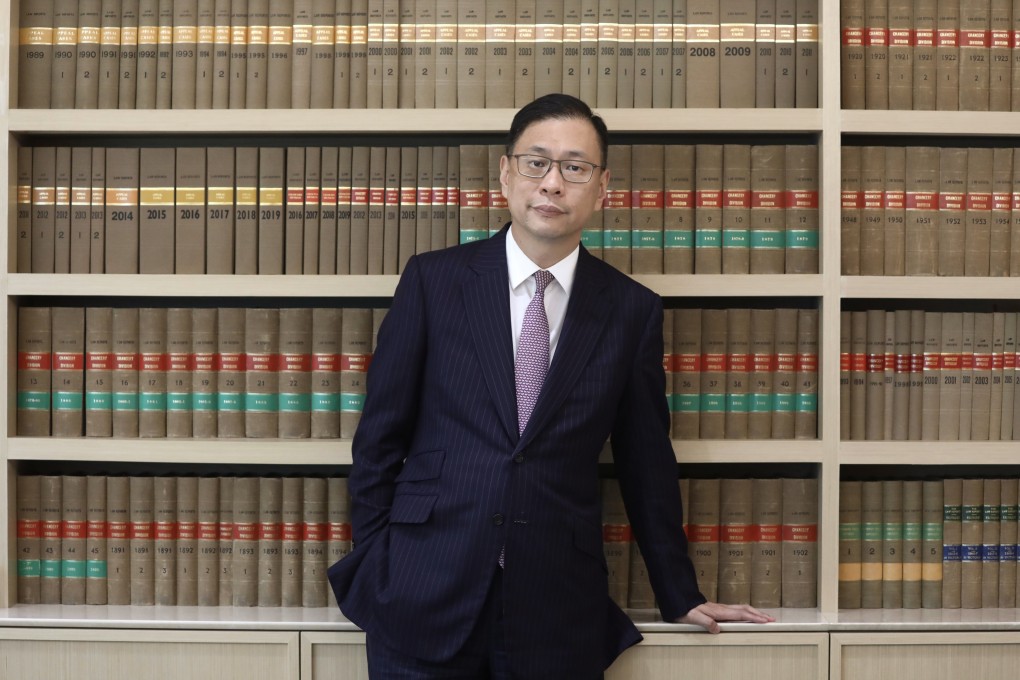Can Hong Kong Bar Association’s new chief walk a tightrope and mend ties with Beijing while speaking up on issues?
- Victor Dawes says he won’t duck or hide from important issues, but pledges to steer clear of politics
- After controversies surrounding past chiefs, new man is optimistic about resuming annual Beijing trips

Taking the helm at a time when the Hong Kong Bar Association is hard-pressed to mend ties with Beijing, new chairman Victor Dawes acknowledges that it can feel like he is treading a tightrope.
He hopes to make a start, and is optimistic that the association’s official annual visits to Beijing, suspended since 2018 as the relationship soured, can happen again.
“Certainly my intention is to resume the annual visits and I think I have confidence that we will be welcomed,” he told the Post in an interview.
At the same time, the 45-year-old commercial law specialist, elected to the top post in January, remained aware of concerns from younger members and the public.
“The public expects and trusts the Bar on rule of law issues. They expect the Bar and the chairman to speak out,” he said.
“We just have to find a line that is in the best interest of Hong Kong people and in the best interest of the Bar. To get things done, and to be heard, we just have to be able to find that delicate line.”
Dawes stepped up at a time of political change in Hong Kong, after Beijing imposed a national security law on the city and overhauled its electoral system to ensure that only “patriots” were in charge.
The electoral changes reduced the influence of the 1,600-strong association in the recent chief executive election. Previously, barristers voted to send the legal representatives to the powerful Election Committee which elected the city’s leader. With the changes, the whole Bar Association has only one vote.